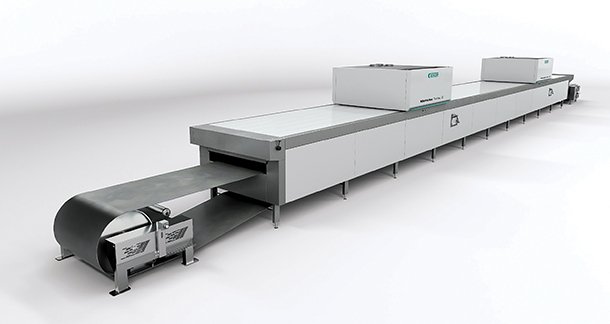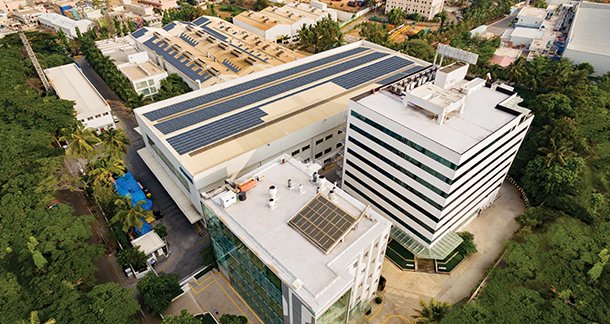In an insightful conversation with FMT, Mr. Ajith Dharan, Head of Consumer Foods, South Asia at Bühler Group, shares his thoughts on how the company is leveraging its Swiss engineering heritage to serve the dynamic South Asian market. Mr. Dharan discusses Bühler’s commitment to sustainability, its role in advancing India’s ‘Atmanirbhar Bharat’ initiative, and how the company’s cutting-edge technologies are helping food producers reduce waste, energy consumption, and emissions, while maintaining the highest standards of food safety. He also sheds light on Bühler’s key global partnerships and their impact on customers in South Asia.
Bühler is renowned for its expertise in process technology and food solutions. Could you elaborate on how the company leverages its Swiss engineering heritage to serve the South Asian market?
Bühler AG is a Swiss multinational company operating in over 140 countries and holds market leadership in several industries, flour milling, chocolate, biscuits, wafers to name a few. In India, we started our operations in 1993 and since then serving the Indian customers with manufacturing, sales and service organisations.
Every day, billions of people come into contact with Bühler technologies to cover their basic needs for food and mobility, and more. Our technologies are in your smartphone, solar panels, diapers, lipstick, banknotes, the foods you eat, and the vehicles you drive.
In India, we have built strong relationships with over 7,500 customers and we offer complete value chain solutions for our customers – this covers process technology, project management, customer service and automation. At Bühler, we’re committed to excellence at every stage, ensuring world-class service and lasting partnerships.

How do your solutions align with India’s ‘Atmanirbhar Bharat’ initiative, especially in strengthening the country’s self-sufficiency in food production?
India produces over 330 million tons of grain annually, but nearly 30% is lost due to inadequate storage, poor material handling and lack of awareness. Bühler is helping address this challenge by focusing on sustainability and reducing waste. We integrate value streams back into the system, boosting food production and efficiency. Our technologies, like the continuous paddy dryer reduces broken rice by 1% creating immense value for our customers. Bühler is driving the ‘Atmanirbhar Bharat’ initiative with manufacturing more machines in India with technology suited for the local markets. All our innovations focus on reduction in energy, waste and water.
Food safety is a critical concern globally. How does Bühler ensure that its food processing machinery meets international standards for hygiene and safety, especially in the context of emerging markets like South Asia?
We ensure that all our solutions support food safety and security, particularly by meeting international standards of hygiene and safety. Food safety is non-negotiable for us, and we embed it in every aspect of our equipment design, ensuring ease of cleaning, maintenance, and accessibility. Our innovations not only help India move toward self-reliance in food production but also address global concerns around food safety and sustainability. The Indian consumers demand high safety standards as their global counterparts and we at Bühler ensure that they get the same exacting safety & hygiene standards when they buy Bühler solutions.

Could you share some of the key collaborations or partnerships that the company has developed globally, and how these partnerships benefit customers in South Asia?
Every day, 2 billion people eat food that has been processed on our machinery and our role in ensuring sustainable food supply puts us in a key position to make a difference for a sustainable future. This is why we have committed to reducing water use, energy and waste by 50% in our customer’s value chains by 2025. But we cannot do it alone. We must harness collaboration and partnership with all stakeholders to drive innovations for a better world.
We engage with academia, startups and other companies to collaborate and offer solutions across the complete value chain for our customers. This is a major benefit for customers, they can speak to Bühler, and we ensure bringing all partners to the table and offer solutions across the full value chain. Recently, we had the Startup Sprint 2024 in Bengaluru where 15 startups participated and pitched with their solutions.
And what are your some of the latest innovations in process technologies that are revolutionizing these industries?
From an Indian perspective, we approach innovation at two levels. On one level, we do design transfer for some of the global products to India and we manufacture them for the Indian and export market. More importantly, we focus on local innovation, designing solutions specifically for the Indian market. For instance, after acquiring Haas in 2018, a global leader in wafer and biscuit production, we built biscuit ovens in 2021 based on a Denmark design but manufactured in India. The next phase involved design and development of a new biscuit oven tailored for the Indian market. The SmartBake oven was launched in August 2024. We continue to invest 5% of our revenue globally in R&D, enabling us to offer technology leading innovation to our customers. This is a journey we are fully invested and customers get the benefit of reduced energy, waste and water in their value chain with our process technologies.

Could you discuss how Bühler’s technologies are helping food producers reduce energy consumption, waste, and emissions?
Sustainability is at the heart of Bühler’s innovation. Every solution we create focuses on reducing energy, waste, or water usage. Our biscuit ovens, for example, are designed for high fuel efficiency, helping customers cut energy consumption. By prioritizing eco-friendly technologies, we help food producers improve efficiency while minimizing their environmental footprint. Similarly, the PesaMill the Bühler innovation for whole wheat flour offers better hygiene, lower power consumption and stoneless grinding compared to traditional chakki.



